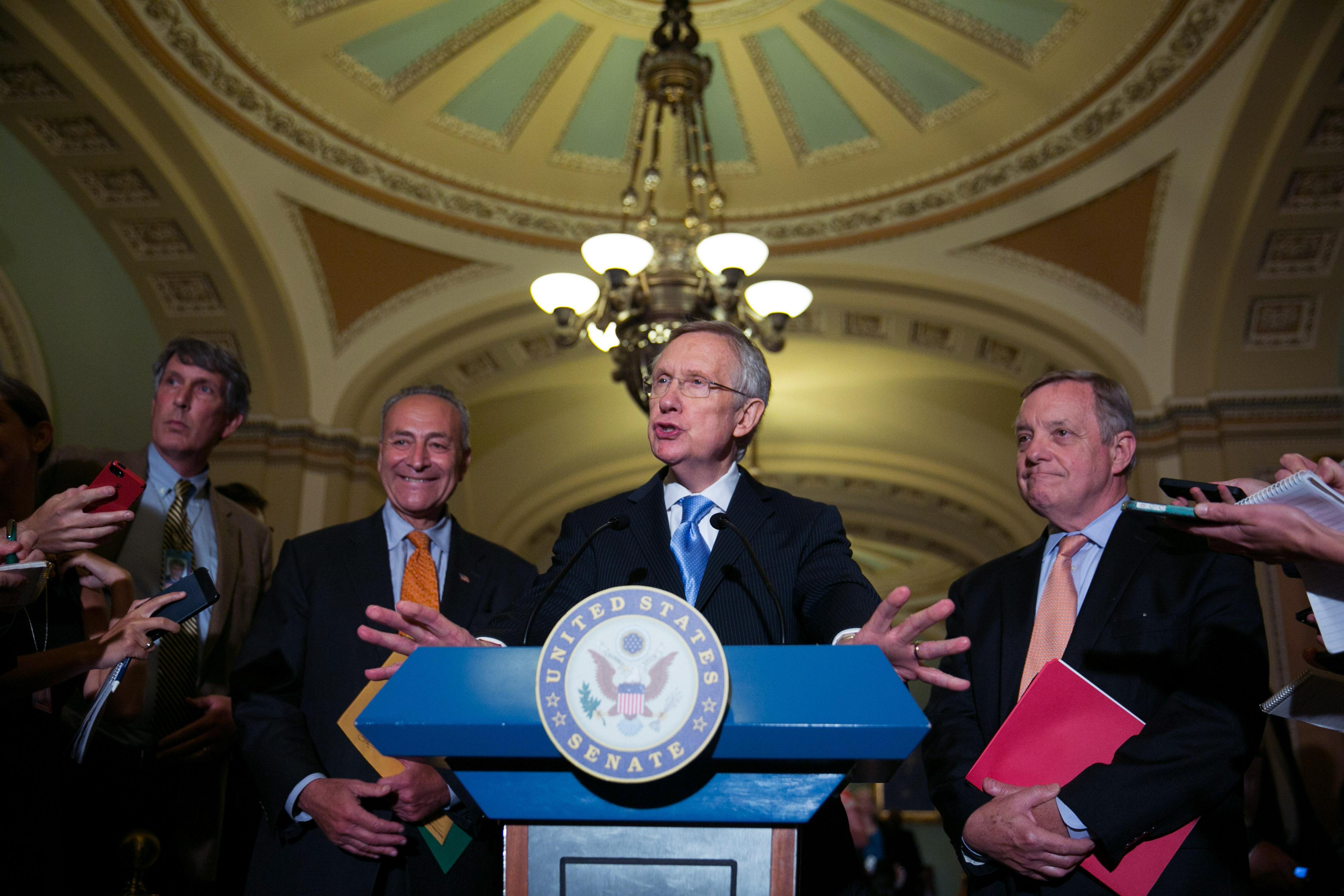This week’s filibuster standoff in the U.S. Senate ended today in a “deal” that’s essentially a total win for Harry Reid and other leading Democratic senators.
The background is that Republicans had been filibustering Barack Obama’s nominee to run the Consumer Finance Protection Bureau and two of his nominees to the National Labor Relations Board. Those vacancies had been making it impossible for those agencies to exercise their full legal authority, and since Republicans don’t really believe the rules the CFPB and NLRB enforce should exist, they were fine with that. Reid threatened to alter the Senate rules to make it much harder to block presidential appointees, and in order to get him to withdraw the thread, Mitch McConnell agreed to back down. Obama’s CFPB director will be confirmed, and as a face-saving compromise the Senate will confirm two other people to the NLRB if Obama agrees to withdraw the two he nominated previously.
What makes it a win on all counts for the Senate Democrats is that in exchange they’re not really giving anything up. The threat of changing the rules is still with us.
But is it a win for America? I would say no. The whole reason that this is an issue is that a number of the more senior Democratic senators have a fairly deep affection for filibustering. But requiring 60 yes votes for the Senate to approve things is not a reasonable decision rule. It undermines democratic accountability and excessively loads the dice against any kind of policy reform. Deals that advance particular substantive goals while leaving a bad procedural framework in place are to be regretted.
